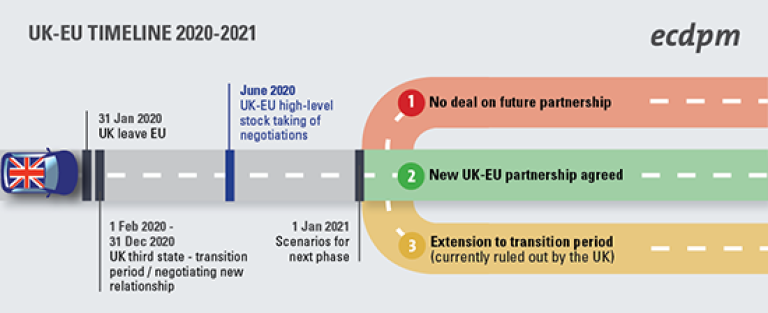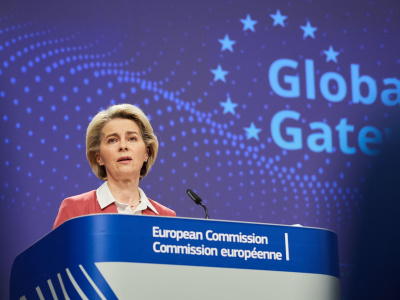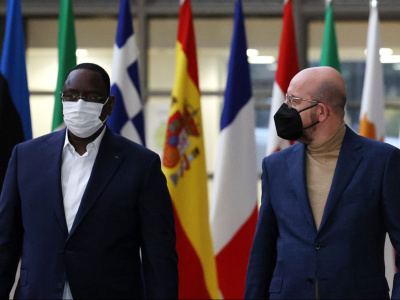
A summer like no other – What’s at stake in critical EU external policy processes
Unusually worried you may miss some big policy developments over the summer? July and August are traditionally quiet months for the European Union (EU), but this will be a summer like no other. In the coming weeks and months, a number of critical processes for EU external action are set to take shape, often faced with further delays and general uncertainty because of COVID-19.
While there is never a guarantee of swift change in EU affairs, there is an unseasonal sense of urgency. People inside the institutions and member states as well as partners in Africa will be working hard to make progress on a number of difficult negotiations, including on the future EU budget, the EU’s partnership with Africa, and Brexit. We preview five key policy processes asking what’s at stake, what is yet to be resolved, and when.

1. Negotiating the EU budget for 2021-2027
What’s at stake? Not only the EU’s budget of over 1 trillion euro for the next seven years, but also the future and credibility of the European project, including the EU’s ambition to work more strategically beyond its own borders.
The budget negotiations were a messy process even before COVID-19 struck, with opposition between those who want to pay less and those in favour of a larger EU budget. The core of the European Commission’s original 2018 proposal remains valid, but was recently updated and boosted with the EU post-COVID-19 Recovery Plan, with its proposed €750 billion temporary recovery instrument called ‘Next Generation EU’. While this instrument also has an amount of €15.5 billion reserved for external action, it is just 2% of the additional €750 billion proposed.
The updated budget proposal includes €118.2 billion for external action (Heading 6), of which €86 billion goes to the Neighbourhood, Development and International Cooperation Instrument (NDICI).
What is yet to be resolved?
1) How much will go to Heading 6 and to the different thematic (such as security) or geographic (Africa for instance) priorities?
2) What form will these resources take? Will it be the proposed NDICI, or will the European Development Fund and/or a Neighbourhood Instrument remain separate in the end?
3) How and when will the deal be struck, and what role will the German EU Presidency play to this end?
When will this be resolved?
A special European Council on the COVID-19 recovery plan and the long-term budget is planned on 17 and 18 July. EU leaders will be under pressure to agree on an overall amount for the budget, based on a new ‘negotiating box’ to be proposed by European Council president Charles Michel ahead of the meeting – yet negotiations could run until the end of 2020. If there is still no agreement by then, all EU initiatives, including the programming of financing instruments, will incur significant delays. This would make it even more difficult for the EU to ‘repair and rebuild’, be it inside the EU or outside its borders.
2. Programming of external assistance for 2021-2027
What’s at stake? How to allocate and prioritise the spending of tens of billions of euros of the EU’s external assistance budget.
The EU’s external assistance resources need to be ‘programmed’ over multiple years – usually seven. Yet, this planning cannot wait until a final budget agreement has been reached, or it will never be ready for 2021. Significant pre-programming work has been undertaken already by the European External Action Service, the Commission and EU delegations.
Over the next 12 months the details will need to be fleshed out at regional and country level, in consultation with partner countries, member states, the European Parliament and civil society, among others. An additional challenge is to sustain the so-called ‘Team Europe’ response to COVID-19 and ensure it effectively feeds into the EU programming process.
What is yet to be resolved?
1) How much will be allocated to each partner country?
2) What priorities and modalities are going to be chosen and negotiated in each country or region?
3) What place is there for the renewed ‘Team Europe’ approach and for the EU and member states working together on EU programming?
When will this be resolved?
The programming process will start in earnest in the second half of 2020 and will extend into 2021. The question is how far. The initial calendar was significantly delayed because of COVID-19, yet the deadline of December 2020 remains, meaning that time pressure is even stronger now – although original timelines for programming always tend to slip.
3. EU-Africa Summit
What’s at stake? A rare opportunity for the top table of political leaders in Africa and Europe to jointly define and agree on priorities of the relationship.
Summits between the African Union (AU) and the European Union usually happen once every three to four years at heads of state and government level. Yet follow-up on these summits has always been a major problem. At the time of writing, the sixth EU-Africa Summit is still scheduled for October 2020 in Brussels. The EU side is eager to follow up on its initial wide-ranging proposals as laid out in the Commission Communication of March 2020 and the Foreign Affairs Council conclusions of 30 June. African representatives have noted that the joint priorities are well known; it is rather the approaches to tackle them that are controversial.
What is yet to be resolved?
1) Will the Summit take place in October 2020 and if so, in what format – physical or virtual?
2) Will the AU and the EU address big-ticket items like post-COVID-19 economic recovery, climate and migration, and if so, how?
3) How can both parties move from talk to joint action, and generate momentum for AU-EU relations between summits?
When will this be resolved?
Both sides still have to confirm the Summit dates, decide on the focus and format, and speed up the political dialogue over the next three months.
4. Post-Cotonou negotiations
What’s at stake? The follow-up cooperation agreement between the EU and the Organisation of African, Caribbean and Pacific States (OACPS; formerly named the African, Caribbean and Pacific Group of States).
Without an agreement or an extension by the end of 2020, the EU and OACPS will not have a legal framework for their relationship as of 2021, which will complicate aid delivery and political dialogue. The technical negotiations have become virtual because of COVID-19, and talks have recently resumed at the highest political level.
What is yet to be resolved?
1) Can the negotiations cross the finish line despite the unknowns on the EU financial instrument and available aid resources?
2) Can a compromise be struck on all the remaining sticky political issues, such as migration (returns and readmissions), death penalty, the International Criminal Court, sexual and reproductive health rights, maritime transport, maritime boundaries, seabed mining or the link with economic partnership agreements? And what about the tricky institutional matters like the Joint Parliamentary Assembly, means of cooperation and the clause on non-fulfilment of obligations (for example around human rights) and other ‘essential elements’ of the agreement?
3) Is there enough enthusiasm on all sides to revitalise both this relationship and the partnership with Africa and the AU?
When will this be resolved?
Deadlines have shifted multiple times, and there are doubts on whether negotiations can be concluded by mid-July as is now foreseen. Even if this is the case, work will still be needed to prepare transition measures once the current agreement expires. This however is not straightforward.
5. Brexit

What’s at stake? The future relationship between the EU and the UK on trade, security and development cooperation – with key implications for the EU and the UK as international actors.
There has been no agreement on extension of the transition period set to end on 31 December 2020. The 2019 UK-EU Political Declaration that opened space for more structured collaboration on security and development cooperation will not be followed. Indeed the focus is now on the UK and EU trying to arrive at a free trade agreement.
The UK seems to want a much looser ad hoc relationship with the EU as it pursues its ‘Global Britain’ agenda internationally, which will put aid much more at the service of British interests. It remains to be seen whether the recent merger of the UK Department for International Development and the Foreign and Commonwealth Office will hinder UK-EU cooperation on development matters, including how they work together (or not) in Africa.
What is yet to be resolved?
1) What will a more ad hoc relationship between the UK and the EU on international and development cooperation look like in practice?
2) Will the EU’s strategic focus on Africa – including in its external assistance aid programming – shift geographically or thematically without the UK?
3) What will be the implications for African trade if a UK-EU trade deal is – or is not – struck?
When will this be resolved?
Brexit never seems to end, but there is a hard deadline in December 2020 when the transition period comes to an end. By then we will know if there will be a (bare-bones) free trade agreement or no deal at all. Getting a full sense of how the UK and the EU will cooperate on an ad hoc basis in development or international cooperation will take years, and there could be quite some regional differences here.
We sincerely hope that there will be some progress on these five issues when we all return from whatever summer vacation has been possible. Courage to all those in Europe, Africa and elsewhere who will work hard to try and make a breakthrough on these issues in the next couple of months. Happy summer holidays to all, wherever you are!
The views are those of the authors and not necessarily those of ECDPM.







